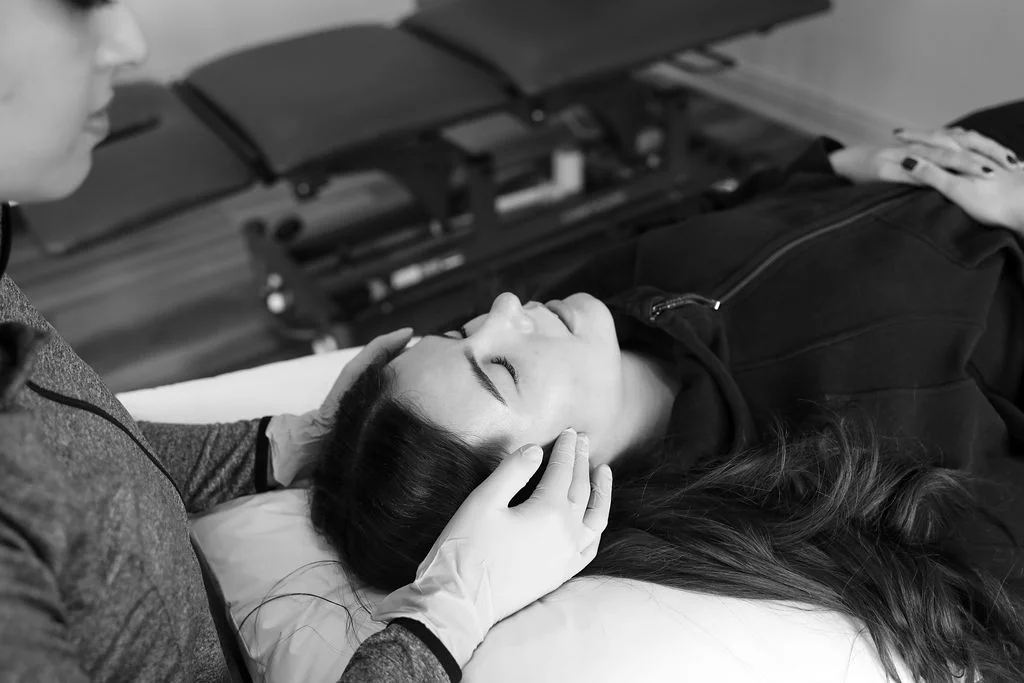
Introduction
Triangle Physiotherapy promotes active treatment programs that emphasize exercise & functional activities & encourage client participation & independence.
What is Physiotherapy?
- Physiotherapy is used to help people affected by injury, illness, or disability through movement, exercise, manual therapy, education and advice.
- At Triangle Physiotherapy, we work in partnership with our patients to help them recover and stay well.
- We use advanced techniques along with evidence based care. The utilization of these skills allows our physiotherapists to assess, diagnose, treat, and prevent a wide range of health conditions and movement disorders.
WHY CHOOSE PHYSIOTHERAPY?
Everyone can benefit from physiotherapy at some point in their lives. It is widely known that physiotherapists treat injuries but people are now increasingly seeking physiotherapy to take back control of their health and wellness.
Our Physiotherapists combine “hands-on” manual therapy techniques, electro-therapeutic modalities, and exercise programs to treat various conditions including:
- Strains & Sprains
- Everyday aches & pains
- Whiplash
- Back Pain
- Pre & Post Surgical Rehabilitation
- Arthritis
- Rotator cuff injury
- Tension Headaches
- Sciatica
- Tendonitis
- Tennis/golfers elbow
- Shin splints
- Bursitis
- Postural Dysfunction
- TMJ disorder
- Carpal tunnel Syndrome
- Pelvic Floor conditions like incontinence
- Vestibular conditions like vertigo
Physiotherapy for Specific Conditions
Physiotherapy is a highly effective approach in managing and treating various conditions. Here are some specific conditions where physiotherapy has proven to be beneficial:
1. Back Pain
Back pain is a prevalent issue affecting individuals of all ages. Physiotherapy plays a vital role in treating back pain by providing pain relief, improving flexibility, and strengthening the muscles supporting the spine. Our physiotherapists utilize a range of techniques, including manual therapy, exercise programs, and posture correction, to alleviate back pain and restore function.
2. Stroke Recovery
Stroke can lead to physical impairments, affecting mobility, balance, and coordination. Physiotherapy plays a crucial role in stroke recovery by helping individuals regain strength, mobility, and independence. Our specialized stroke rehabilitation programs focus on improving motor skills, balance, and gait training to enhance overall quality of life.
3. Arthritis
Arthritis is a chronic condition characterized by joint pain and stiffness. Physiotherapy offers effective management strategies for arthritis, including exercises to improve joint mobility, pain relief techniques, and education on joint protection. Our physiotherapists work closely with arthritis patients, tailoring treatment plans to alleviate pain, improve joint function, and enhance overall quality of life.
4. Sports Injuries
Sports injuries can range from sprains and strains to more complex conditions like ligament tears and fractures. Physiotherapy is integral to sports injury rehabilitation, promoting optimal recovery and preventing further injuries. Our physiotherapists employ a multidisciplinary approach that includes manual therapy, therapeutic exercises, and sport-specific training to help athletes regain strength, flexibility, and function.
5. Cancer Rehabilitation
Cancer treatment often involves surgery, chemotherapy, or radiation therapy, which can result in physical limitations and impairments. Physiotherapy plays a significant role in cancer rehabilitation by addressing pain, fatigue, and muscular weakness. Our dedicated physiotherapists develop personalized rehabilitation programs to enhance physical function, reduce treatment-related side effects, and improve overall well-being.
How Physiotherapy Can Improve Your Overall Health and Wellness
Physiotherapy extends beyond the treatment of specific conditions. It offers numerous benefits that contribute to your overall health and wellness. Here’s how physiotherapy can improve your well-being:
- Pain Management: Physiotherapy techniques such as manual therapy, therapeutic exercises, and modalities like heat or cold therapy can effectively manage pain, promoting a better quality of life.
- Enhanced Mobility: Physiotherapy interventions focus on improving mobility, range of motion, and flexibility, allowing you to perform daily activities with greater ease and comfort.
- Prevention of Injuries: Physiotherapy helps identify and address potential risk factors for injuries. Through targeted exercises, education, and proper body mechanics, physiotherapy minimizes the risk of future injuries.
- Stress Reduction: Engaging in physical activities, guided by a physiotherapist, releases endorphins, reducing stress levels and promoting mental well-being.
- Improved Balance and Coordination: Physiotherapy exercises and balance training enhance stability, reducing the risk of falls and improving overall coordination.
- Posture Correction: Poor posture can lead to musculoskeletal imbalances and pain. Physiotherapy addresses postural issues, providing corrective exercises and ergonomic recommendations.
If you are interested or still have any queries about physiotherapy and what our physiotherapists can do for you, contact us at Triangle Physiotherapy. Triangle Physiotherapy has eight convenient locations: Physiotherapy Etobicoke, Physiotherapy Oakville, Physiotherapy Mississauga, Physiotherapy North York, Yonge Street (Physiotherapy Toronto), King West (Toronto), Queens Quay (Toronto) and Erin Mills (Mississauga). At Triangle, our team is comprised of professionals who love what they do. Our staff will ensure that you have a safe and comfortable recovery while in their care, and will do their best to help you get your life back on track.
For more information on our services, contact: info@trianglephysiotherapy.com.
FAQs
WHAT IS A PHYSIOTHERAPY SESSION LIKE?
Every visit is unique, just like our patients and their health conditions. A typical physiotherapy session may include:
- A full assessment and diagnosis of the patient’s specific condition(s) and need(s).
- Working along with the patient to set and establish goals—whether it may be attaining mobility, independence, or getting back to playing a sport of their choice.
- Developing a treatment and/or prevention plan that will take into account lifestyle, activities, and general health.
- The prescription of braces and exercise as required.
DOES PHYSIOTHERAPY HURT?
- In general, physiotherapy should not hurt. Although, the first initial session & certain stretches and exercises may cause a slight discomfort. Every person has a different pain tolerance so experience may vary.
DOES PHYSIOTHERAPY HAVE SIDE EFFECTS?
- In the vast majority of cases physiotherapy has been revered as extremely effective. Research suggests that physiotherapy significantly improves the rehabilitation and recovery of most conditions, as well as being instrumental in the prevention of further injury. Physiotherapy often forms an integral part of a patient’s treatment plan and can be a means of relaxation and restoration of function.
DO YOU NEED A DOCTORS REFERRAL?
- No you do not need a doctors referral since physiotherapy is considered primary care. However, you may want to call your insurance to find out if they need a referral to reimburse you for your physiotherapy treatments.
WHAT SHOULD YOU WEAR?
- We recommend loose-fitting clothing so it is easier to expose the area that our physiotherapist will be evaluating and treating such as a tank top for a shoulder injury, or a pair of shorts in the case of a knee problem.
HOW LONG ARE THE SESSIONS?
- Treatment sessions last normally 30 to 90 minutes per visit.
HOW MANY VISITS DO YOU NEED?
- The number of visits can be highly variable depending on your condition. You may need one visit or you may need months of care. It ultimately depends on the physiotherapist’s assessment and diagnosis, the severity of your impairments, your past medical history, etc.
WHAT SHOULD I DO AFTER MY TREATMENTS?
- Depending on the condition, some patients will need to do a continuation of at-home exercises. Some patients may choose to continue with a gym exercise program. Others will complete their rehabilitation and return to normal every day activities. It is highly important you speak to your physiotherapist at Triangle Physiotherapy, exactly what your goals are so we can help develop a custom program, tailored for you.



